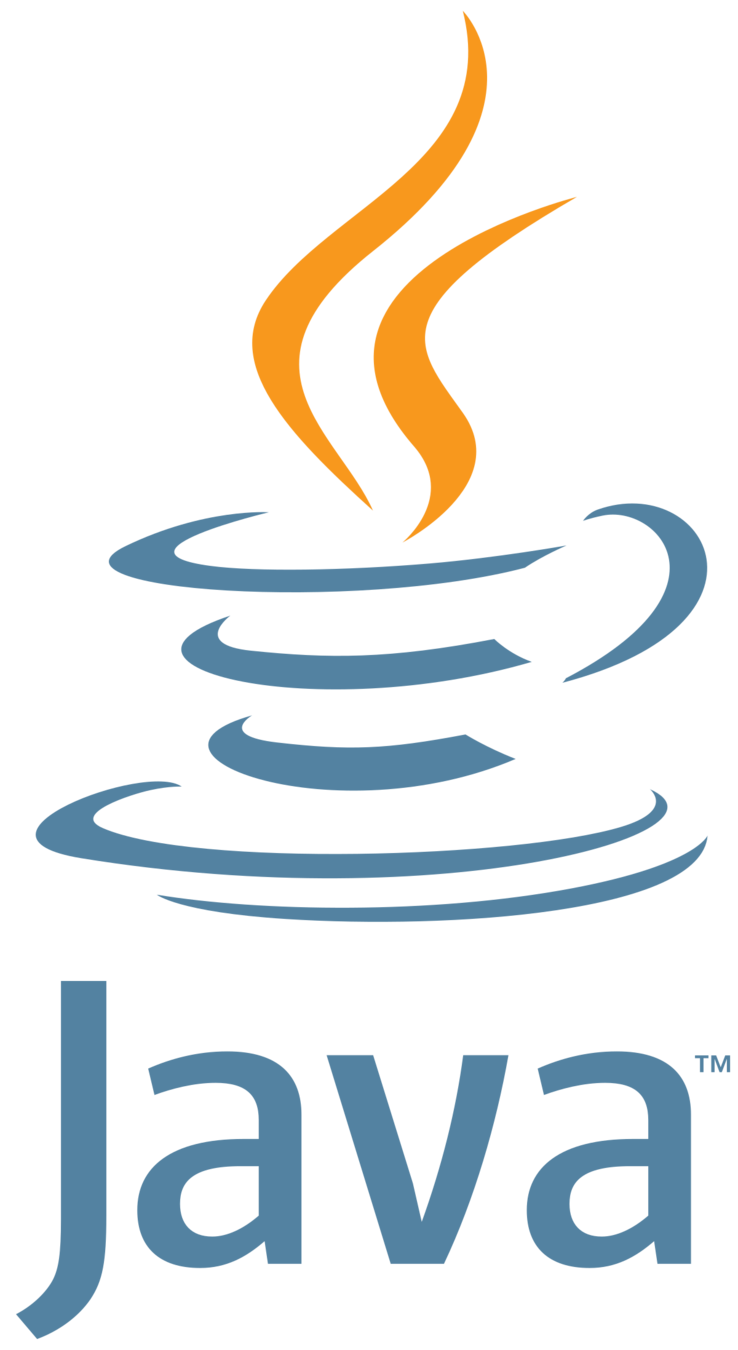Introduction to the Course


Agenda

-
Introduction to the course
-
What is Java and why is it so popular ?
-
Compiler and Interpreter
-
JVM, JDK



Meet the
Instructor
SDE & Instructor
Tarun Luthra




Introduction to Java
1
Getting Started with Java
3
5
2
4
6
Setup & Installation
Operators & Control Statements
Functions
Loops


Arrays
7
2D Arrays
9
11
Collections and Important Libraries
8
10
12
Strings
Autoboxing
Introduction to OOPS


What is Java ?
Java is a general-purpose, high-level, object-oriented programming language.
It was developed by James Gosling at Sun Microsystems in 1995


There were 5 main goals in the creation of Java.
- It must be simple, object-oriented, and familiar.
- It must be robust and secure.
- It must be architecture-neutral and portable.
- It must execute with high performance.
- It must be interpreted, threaded, and dynamic.

Principles of Java

James Gosling, creator of Java


Why is Java so popular ?
- Platform independence
- Fundamentally object-oriented
- Easy to learn
- Versatile



Use cases of Java
- Building Android Apps
- Java web applications
- Software tools
- Scientific Applications
... and many more



Programmer writes the source code
1
Bytecode is executed over the virtual machine
3
2
4
The program works over the machine
Source code is compiler into bytecode


Programmer writes the source code
1
Bytecode is executed over the virtual machine
3
2
4
The program works over the machine

Source code is compiler into bytecode


Programmer writes the source code
1
3
2
4
The program works over the machine

Java Code
Source code is compiler into bytecode
Bytecode is executed over the virtual machine


Programmer writes the source code
1
3
2
4
The program works over the machine

Java Code
Compiler
Source code is compiler into bytecode
Bytecode is executed over the virtual machine


Programmer writes the source code
1
3
2
4
Source code is compiler into bytecode
The program works over the machine

Java Code
Bytecode
Compiler
Bytecode is executed over the virtual machine


Programmer writes the source code
1
3
2
4
Source code is compiler into bytecode
The program works over the machine

Java Code
Bytecode
Compiler
Bytecode
Bytecode is executed over the virtual machine


Programmer writes the source code
1
3
2
4
Source code is compiler into bytecode
The program works over the machine

Java Code
Bytecode
Compiler
Bytecode
Virtual Machine
Bytecode is executed over the virtual machine


Programmer writes the source code
1
3
2
4
Source code is compiler into bytecode
The program works over the machine

Java Code
Bytecode
Compiler
Bytecode
Virtual Machine

Bytecode is executed over the virtual machine


Java Code
Bytecode
Compiler
Virtual Machine


Java Code
Bytecode
Compiler
Java Virtual Machine


Java Code
Bytecode
Compiler
Java Virtual Machine
(JVM)


Java Code
Bytecode
Compiler
Java Virtual Machine
(JVM)
Runtime Environment


Java Code
Bytecode
Compiler
Java Virtual Machine
(JVM)
Java Runtime Environment
(JRE)


Java Code
Bytecode
Compiler
Java Virtual Machine
(JVM)
Java Runtime Environment
(JRE)
+ libraries and classes


Java Code
Bytecode
Compiler
Java Virtual Machine
(JVM)
Java Runtime Environment
(JRE)
+ libraries and classes


Java Code
Bytecode
Compiler
Java Virtual Machine
(JVM)
Java Runtime Environment
(JRE)
+ libraries and classes
+ Development tools


Java Code
Bytecode
Compiler
Java Virtual Machine
(JVM)
Java Runtime Environment
(JRE)
+ libraries and classes
+ Development tools
Java Development Kit


Java Code
Bytecode
Compiler
Java Virtual Machine
(JVM)
Java Runtime Environment
(JRE)
+ libraries and classes
+ Development tools
Java Development Kit
(JDK)




#include <bits/stdc++.h>
using namespace std;
void swap(int *xp, int *yp)
{
int temp = *xp;
*xp = *yp;
*yp = temp;
}
// A function to implement bubble sort
void bubbleSort(int arr[], int n)
{
int i, j;
for (i = 0; i < n-1; i++)
// Last i elements are already in place
for (j = 0; j < n-i-1; j++)
if (arr[j] > arr[j+1])
swap(&arr[j], &arr[j+1]);
}
/* Function to print an array */
void printArray(int arr[], int size)
{
int i;
for (i = 0; i < size; i++)
cout << arr[i] << " ";
cout << endl;
}
// Driver code
int main()
{
int arr[] = {64, 34, 25, 12, 22, 11, 90};
int n = sizeof(arr)/sizeof(arr[0]);
bubbleSort(arr, n);
cout<<"Sorted array: \n";
printArray(arr, n);
return 0;
}
Code Web Dev [CodePen]
// This slide uses Auto-Animate to animate between
// two different code blocks
const distanceBetween = ( p1, p2 ) => {
// TODO
}
distanceBetween([10,10], [50,50])
Code Transitions
Bubble Sort Algorithm # include <bits/stdc++.h> using namespace std ; void swap ( int *xp, int *yp) { int temp = *xp; *xp = *yp; *yp = temp; } // A function to implement bubble sort void bubbleSort ( int arr[], int n) { int i, j; for (i = 0 ; i < n -1 ; i++) // Last i elements are already in place for (j = 0 ; j < n-i -1 ; j++) if (arr[j] > arr[j+ 1 ]) swap(&arr[j], &arr[j+ 1 ]); } /* Function to print an array */ void printArray ( int arr[], int size) { int i; for (i = 0 ; i < size; i++) cout << arr[i] << " " ; cout << endl ; } // Driver code int main () { int arr[] = { 64 , 34 , 25 , 12 , 22 , 11 , 90 }; int n = sizeof (arr)/ sizeof (arr[ 0 ]); bubbleSort(arr, n); cout << "Sorted array: \n" ; printArray(arr, n); return 0 ; } # include <bits/stdc++.h> using namespace std ; void swap ( int *xp, int *yp) { int temp = *xp; *xp = *yp; *yp = temp; } // A function to implement bubble sort void bubbleSort ( int arr[], int n) { int i, j; for (i = 0 ; i < n -1 ; i++) // Last i elements are already in place for (j = 0 ; j < n-i -1 ; j++) if (arr[j] > arr[j+ 1 ]) swap(&arr[j], &arr[j+ 1 ]); } /* Function to print an array */ void printArray ( int arr[], int size) { int i; for (i = 0 ; i < size; i++) cout << arr[i] << " " ; cout << endl ; } // Driver code int main () { int arr[] = { 64 , 34 , 25 , 12 , 22 , 11 , 90 }; int n = sizeof (arr)/ sizeof (arr[ 0 ]); bubbleSort(arr, n); cout << "Sorted array: \n" ; printArray(arr, n); return 0 ; } # include <bits/stdc++.h> using namespace std ; void swap ( int *xp, int *yp) { int temp = *xp; *xp = *yp; *yp = temp; } // A function to implement bubble sort void bubbleSort ( int arr[], int n) { int i, j; for (i = 0 ; i < n -1 ; i++) // Last i elements are already in place for (j = 0 ; j < n-i -1 ; j++) if (arr[j] > arr[j+ 1 ]) swap(&arr[j], &arr[j+ 1 ]); } /* Function to print an array */ void printArray ( int arr[], int size) { int i; for (i = 0 ; i < size; i++) cout << arr[i] << " " ; cout << endl ; } // Driver code int main () { int arr[] = { 64 , 34 , 25 , 12 , 22 , 11 , 90 }; int n = sizeof (arr)/ sizeof (arr[ 0 ]); bubbleSort(arr, n); cout << "Sorted array: \n" ; printArray(arr, n); return 0 ; } # include <bits/stdc++.h> using namespace std ; void swap ( int *xp, int *yp) { int temp = *xp; *xp = *yp; *yp = temp; } // A function to implement bubble sort void bubbleSort ( int arr[], int n) { int i, j; for (i = 0 ; i < n -1 ; i++) // Last i elements are already in place for (j = 0 ; j < n-i -1 ; j++) if (arr[j] > arr[j+ 1 ]) swap(&arr[j], &arr[j+ 1 ]); } /* Function to print an array */ void printArray ( int arr[], int size) { int i; for (i = 0 ; i < size; i++) cout << arr[i] << " " ; cout << endl ; } // Driver code int main () { int arr[] = { 64 , 34 , 25 , 12 , 22 , 11 , 90 }; int n = sizeof (arr)/ sizeof (arr[ 0 ]); bubbleSort(arr, n); cout << "Sorted array: \n" ; printArray(arr, n); return 0 ; }
Bubble Sort Algorithm


/* * . * . * * .
. * move your mouse to over the stars .
* . . change these values: . *
. * . . * . */
const STAR_COLOR = '#fff';
const STAR_SIZE = 3;
const STAR_MIN_SCALE = 0.2;
const OVERFLOW_THRESHOLD = 50;
const STAR_COUNT = ( window.innerWidth + window.innerHeight ) / 8;
const canvas = document.querySelector( 'canvas' ),
context = canvas.getContext( '2d' );
let scale = 1, // device pixel ratio
width,
height;
let stars = [];
let pointerX,
pointerY;
let velocity = { x: 0, y: 0, tx: 0, ty: 0, z: 0.0005 };
let touchInput = false;
generate();
resize();
step();
window.onresize = resize;
canvas.onmousemove = onMouseMove;
canvas.ontouchmove = onTouchMove;
canvas.ontouchend = onMouseLeave;
document.onmouseleave = onMouseLeave;
function generate() {
for( let i = 0; i < STAR_COUNT; i++ ) {
stars.push({
x: 0,
y: 0,
z: STAR_MIN_SCALE + Math.random() * ( 1 - STAR_MIN_SCALE )
});
}
}
function placeStar( star ) {
star.x = Math.random() * width;
star.y = Math.random() * height;
}
function recycleStar( star ) {
let direction = 'z';
let vx = Math.abs( velocity.x ),
vy = Math.abs( velocity.y );
if( vx > 1 || vy > 1 ) {
let axis;
if( vx > vy ) {
axis = Math.random() < vx / ( vx + vy ) ? 'h' : 'v';
}
else {
axis = Math.random() < vy / ( vx + vy ) ? 'v' : 'h';
}
if( axis === 'h' ) {
direction = velocity.x > 0 ? 'l' : 'r';
}
else {
direction = velocity.y > 0 ? 't' : 'b';
}
}
star.z = STAR_MIN_SCALE + Math.random() * ( 1 - STAR_MIN_SCALE );
if( direction === 'z' ) {
star.z = 0.1;
star.x = Math.random() * width;
star.y = Math.random() * height;
}
else if( direction === 'l' ) {
star.x = -OVERFLOW_THRESHOLD;
star.y = height * Math.random();
}
else if( direction === 'r' ) {
star.x = width + OVERFLOW_THRESHOLD;
star.y = height * Math.random();
}
else if( direction === 't' ) {
star.x = width * Math.random();
star.y = -OVERFLOW_THRESHOLD;
}
else if( direction === 'b' ) {
star.x = width * Math.random();
star.y = height + OVERFLOW_THRESHOLD;
}
}
function resize() {
scale = window.devicePixelRatio || 1;
width = window.innerWidth * scale;
height = window.innerHeight * scale;
canvas.width = width;
canvas.height = height;
stars.forEach( placeStar );
}
function step() {
context.clearRect( 0, 0, width, height );
update();
render();
requestAnimationFrame( step );
}
function update() {
velocity.tx *= 0.96;
velocity.ty *= 0.96;
velocity.x += ( velocity.tx - velocity.x ) * 0.8;
velocity.y += ( velocity.ty - velocity.y ) * 0.8;
stars.forEach( ( star ) => {
star.x += velocity.x * star.z;
star.y += velocity.y * star.z;
star.x += ( star.x - width/2 ) * velocity.z * star.z;
star.y += ( star.y - height/2 ) * velocity.z * star.z;
star.z += velocity.z;
// recycle when out of bounds
if( star.x < -OVERFLOW_THRESHOLD || star.x > width + OVERFLOW_THRESHOLD || star.y < -OVERFLOW_THRESHOLD || star.y > height + OVERFLOW_THRESHOLD ) {
recycleStar( star );
}
} );
}
function render() {
stars.forEach( ( star ) => {
context.beginPath();
context.lineCap = 'round';
context.lineWidth = STAR_SIZE * star.z * scale;
context.globalAlpha = 0.5 + 0.5*Math.random();
context.strokeStyle = STAR_COLOR;
context.beginPath();
context.moveTo( star.x, star.y );
var tailX = velocity.x * 2,
tailY = velocity.y * 2;
// stroke() wont work on an invisible line
if( Math.abs( tailX ) < 0.1 ) tailX = 0.5;
if( Math.abs( tailY ) < 0.1 ) tailY = 0.5;
context.lineTo( star.x + tailX, star.y + tailY );
context.stroke();
} );
}
function movePointer( x, y ) {
if( typeof pointerX === 'number' && typeof pointerY === 'number' ) {
let ox = x - pointerX,
oy = y - pointerY;
velocity.tx = velocity.tx + ( ox / 8*scale ) * ( touchInput ? 1 : -1 );
velocity.ty = velocity.ty + ( oy / 8*scale ) * ( touchInput ? 1 : -1 );
}
pointerX = x;
pointerY = y;
}
function onMouseMove( event ) {
touchInput = false;
movePointer( event.clientX, event.clientY );
}
function onTouchMove( event ) {
touchInput = true;
movePointer( event.touches[0].clientX, event.touches[0].clientY, true );
event.preventDefault();
}
function onMouseLeave() {
pointerX = null;
pointerY = null;
}
Code Web Dev


// This slide uses Auto-Animate to animate between
// two different code blocks
const distanceBetween = ( p1, p2 ) => {
// TODO
}
distanceBetween([10,10], [50,50])Code Transitions


// Measure the distance between two points
const distanceBetween = ( p1, p2 ) => {
const dx = p1[0]-p2[0];
const dy = p1[1]-p2[1];
return Math.sqrt( dx*dx + dy*dy );
}
distanceBetween([10,10], [50,50])
Code Transitions


Problems!
Let's begin!



Problem Name
Given an array of size N, reverse the array.
Sample Input
N = 5
arr[] = {1,2,3,4,5}
Sample Output
5,4,3,2,1





Process
Build
During the ideation phase, expect to discuss the project in depth to clearly understand the goals and requirements.
1
2
3
Compile
During the ideation phase, expect to discuss the project in depth to clearly understand the goals and requirements.
Execute
During the ideation phase, expect to discuss the project in depth to clearly understand the goals and requirements.


With built-in \LaTeXLATEX typesetting, you can include math formulas like this:
f(x) = \int_{-\infty}^\infty \hat f(\xi)\,e^{2 \pi i \xi x} \,d\xi
f(x)=∫−∞∞^(ξ)e2πiξxdξ


Homework
Our design team has a collective 75 years of experience in crafting digital products.
Our diverse backgrounds offer a thorough mix of points of view.



Table
| C++ | Java | Python |
|---|---|---|


Discovery of requirements for a project.
1
Creating a Plan that sets the requirements for the design and build phases.
3
Review and Iterate on the designs with testing of ideas, client feedback and prototypes.
5
Review and Iterate on the designs with testing of ideas, client feedback and prototypes.
2
4
6
Research into the project space, competitors and the market.
Design a number of iterations that capture the plans and requirements.
Build the project to an MVP to test and evaluate. Iterate using these learnings.


Time to try!
